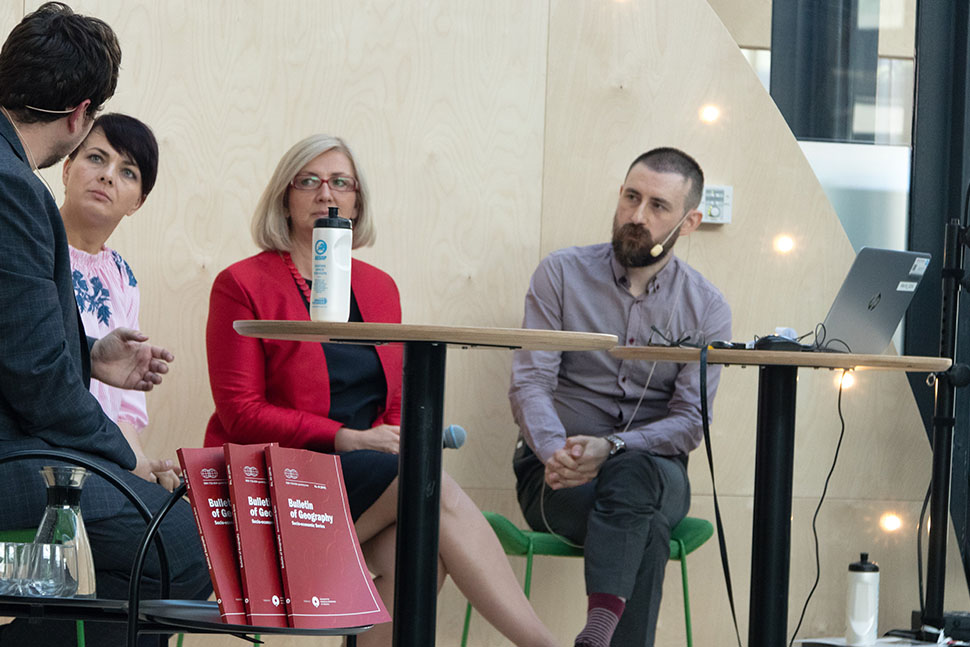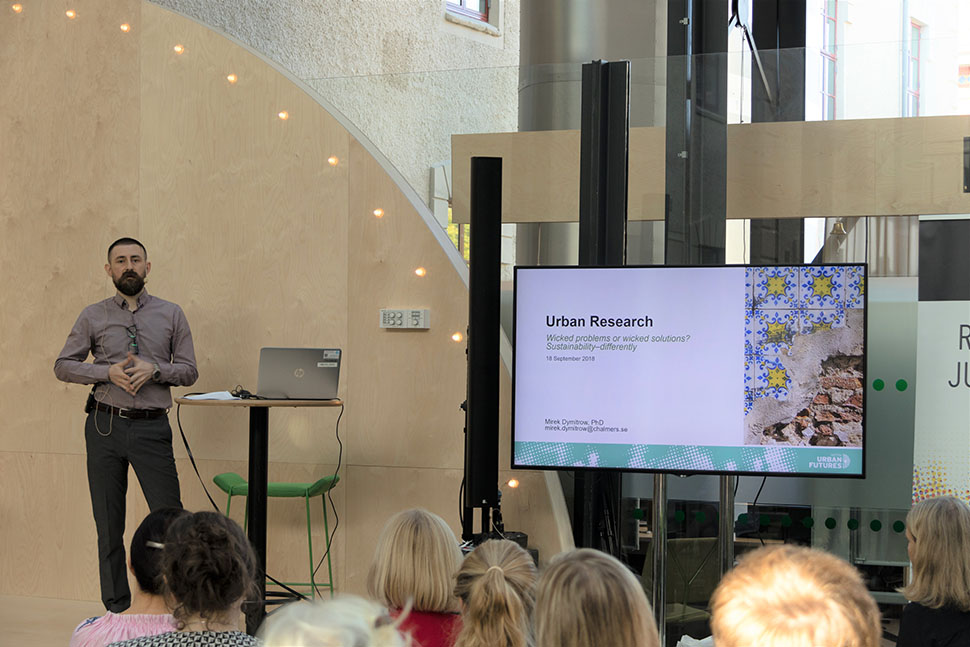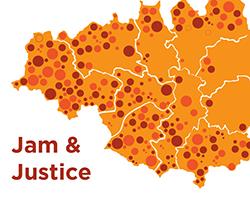
New developments on ”wicked solutions” concept in Europe
Mistra Urban Futures and Business Region Gothenburg organized a seminar in the Urban Research series, with a panel of three invited international guests. The seminar was the second track in a dual research endeavor dedicated to the increased need to think about sustainability differently, the first being a special issue in the Bulletin of Geography (co-edited by Mirek Dymitrow and Keith Halfacree).
Mistra Urban Futures recently organized a seminar in the Urban Research series, with a panel of three invited international guests. The seminar was the second track in a dual research endeavor dedicated to the increased need to think about sustainability differently, the first being a special issue in the Bulletin of Geography.
Both the special issue and the seminar arose as a response to real-life problems and challenges encountered by the EU project Urban Rural Gothenburg, with which Mistra Urban Futures is associated through a research forum. In view of the specific socio-economic characteristics of the place of the project’s deployment – the North-East parts of Gothenburg – with high levels of segregation, unemployment, failing health, low education scores and high crime rates, has led the Research Forum to open up to scientific debate on how to best strive for sustainability in such settings.
Background: Sustainability–differently
The special issue attracted 25 researchers from all corners of the world, resulting in 12 cutting edge articles reviewed by an international cadre of 40 scholars. During the work on the special issue, a number of important points arose, including several developments on the concept of “wicked problem”. Wicked problems are real-world problems that acknowledge the complex interdependence of diverse factors and stakeholders, rather than simplistic, linear cause-and-effect abstractions that isolate the intervention from its context. This ever-so-relevant concept was taken to a new dimension, namely that sustainability in itself may be considered wicked if it is elevated to the status of a special currency or simply turned into an empty rhetorical ‘tick-box’ that does not take ample consideration of the context in which it is being deployed. It is during these divagations that the first signs of new conceptual developments began to emerge.
Wicked problems or wicked solutions?
The next step was to move away from the constricting format of the written word and open up to the dynamic format of an open forum. For the seminar, three international scholars were invited to share their experiences and ideas about sustainability and how it can be understood and approached through the prism of deprivation; in other words – differently.
New conceptual developments
Departing from the concept of “wicked problem”, the seminar discussion led by Mirek Dymitrow (Chalmers University of Technology / University of Gothenburg) crystallized a new conceptual development, namely that of a “wicked solution”. Based on the three, much different, keynotes, the following bold hypothesis could be posed: While the social problems of today have gone wicked, we still tend to think of them as tame (solvable). Tame approaches to wicked problems, in turn, may give rise to ”wicked solutions”. What this means is that the deployed “solution” may be so preposterous
that it may overwhelm the wickedness of the problem it is trying to fix. This adds up to the precariousness of the situation, making it twice as difficult to amend. The three keynotes pointed to three different, yet fundamentally similar, types of wicked solutions:
Take-home message
The seminar engaged with the consequent need to recognize the increasing complexity and interconnectedness of various aspects of social life, not least when reflected in policy and planning. It assembled three brave takes on problems bedeviling conventionally conceptualized paths towards sustainability. Arguing against oversimplification in unquestioned practices and rhetorics, its aim was to foster explorations into new territories from which we may learn. The main contribution of the seminar was to launch the concept of “wicked solution” – a type of damaging counteraction deployed to solve a “wicked problem”. By acknowledging wicked solutions as different from wicked problems, it is possible to mitigate the negative effects that may arise when the two intertwine.
The three invited guests were
Prof. Dimitrinka Jordanova Peshevska from the American University College (Macedonia), shared the taunting story of Skopje, the world’s most polluted city.
Dr. Jadwiga Biegańska from the Nicolaus Copernicus University (Poland) depicted the dire situation of ”rural-urban thinking” in Poland, a perspective which saturates every level and dimension of policy and planning.
Dr. Rene Brauer from the University of Hull (UK) recalled the case of Urban Rural Gothenburg (Stadslandet) and the media frenzy that struck the project in early 2017.
Further questions: Mirek Dymitrow, Researcher, Mistra Urban Futures, mirek.dymitrow@chalmers.se
This is a short version of the report listed below.
Files
-
New developments on the concept of wicked solutionPDF









